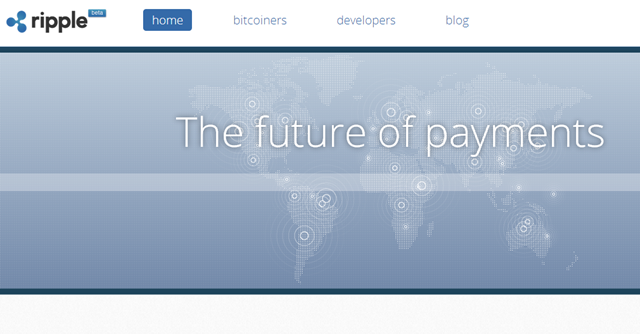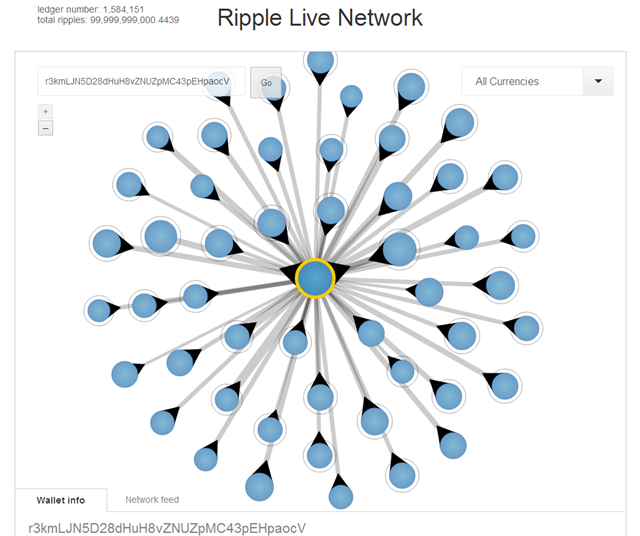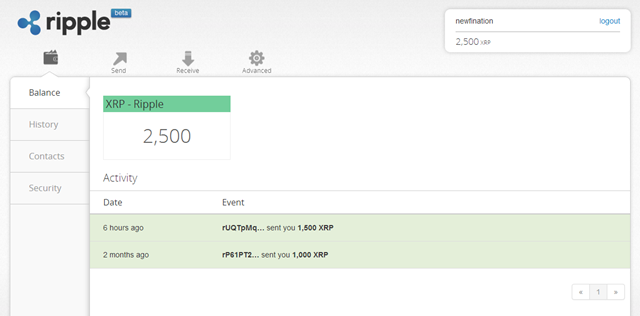
The Ripple Network is a global open payments system that works with all currencies. It also contains its own embedded digital currency called ripple identified with the foreign exchange symbol XRP.
Everybody in the world, from individuals, businesses, financial institutions, to central banks, and governments, can connect to the network to send, receive, buy, and sell any currency . You can learn more about the network by going to Ripple.com.
OpenCoin Inc. is a San Francisco based start-up founded by some of the original members of the bitcoin community. Under the same principles of openness and decentralization of bitcoin they decided to build The Ripple Network as an open source software. The company is a private entity that has three functions in the network; to continue development of the source code, to promote the adoption of the network, and to distribute evenly the original ripple currency around the world.
The ripple digital currency (XRP) was issued from the start and there are XRP 100 billion. Of this the company is in the process of distributing 80% so it is in the public domain for normal transactional use. 20% is staying in their possession as compensation and to finance the company’s future growth.
The main distinction between bitcoin and ripple is that bitcoin is a digital currency supported by a network so it can be transacted and stored between participants. In the case of ripple, it is a network that supports all currencies, including bitcoin, that cointains a digital currency to facilitate its operation.
The Ripple Network’s 3 functions:
It is a global payments system: As a multi-currency network it enables the instant transfer of all currencies from anywhere to anywhere for virtually no cost. Individuals, merchants, banks, and any entity connected to ripple can send and receive money from and to anybody directly with no intermediation.
It is a currency exchange: Since the network supports all currencies it has a currency exchange mechanism to enable multi-currency transfers. Among the participants on the exchange there are currency traders and banks that place bids and offers to buy and sell currencies. When a transfer is initiated in one currency to be delivered in another one, the system automatically executes the exchange at the best rate in the network.
It contains a digital currency: To facilitate the flow of money in the system it contains a native currency, XRP, that can be used to transfer money in different denominations within the network. Also, like any other currency, it is a value reserve, a unit of account, and a medium of exchange.

Who is it for?
Individuals: On ripple consumers can have their digital wallets. The wallets support all currencies. Individuals can use their wallets to trade currencies or buy them as an investment. Anyone with a wallet can buy goods and services from merchants enrolled in the system.
Merchants: Since consumers can use their ripple wallets to pay for things, merchants can use the network to sell globally and have the ability to get paid in any currency.
Financial institutions: Ripple can be used by banks as their “back end” technology to move money around the world at virtually no cost. Banks and other entities can also use it to place bids and offers to trade currencies.
And how can I use it?
The whole network is still in “beta” which means it is still being adjusted for bugs and user experience. It will eventually host many services like wallets, payments, trading, lending, money management, etc.
OpenCoin created the Ripple.com website to inform the public and developers about the network, to distribute the XRP currency, and to provide the basic version of the Ripple Wallet.

The Ripple Wallet is like a web based email service, but with the functionality of keeping track of balances and sending and receiving all currencies. This includes the ability to buy and store XRP.
To get a Ripple Wallet you need to go here: https://ripple.com/client/#/register.
It is important to note that for security reasons only users control their passwords and secret keys to manage their wallets and the money in it. If you open a wallet, buy currencies, and then lose your pass phrase and secret key you WILL NOT be able to recover them and WILL LOSE your money.
This last issue is not intrinsic to the network, as new companies enter the scene offering new services, password recovery and secret key management will get much easier and more like regular banking services.
Virtually free or free?
To move money in the network is free in the sense that nobody, even OpenCoin, charges anything to transfer money around the world. But there is a minimal cost to protect the network from denial-of-service attacks (DDoS) which have plagued the bitcoin network since the beginning.
This cost is 100.000th of a ripple every time there is a transfer. This means that when there is a transaction XRP 0.00001 is charged to that transaction to prevent these attacks. But don’t worry, it will take thousands of years for ripples to disappear with this mechanism!
Disclaimer: the explanation and opinions expressed here are mine and do not represent the opinions of OpenCoin, Patrick Griffin, or any member of the Ripple community. My mission is to inform the public about new-finance services and technologies and I find The Ripple Network worth of exploration and adoption especially for savvy users. I hold a Ripple Wallet with 2500 XRP shown above. My holdings are roughly worth $10.50 at current market prices.